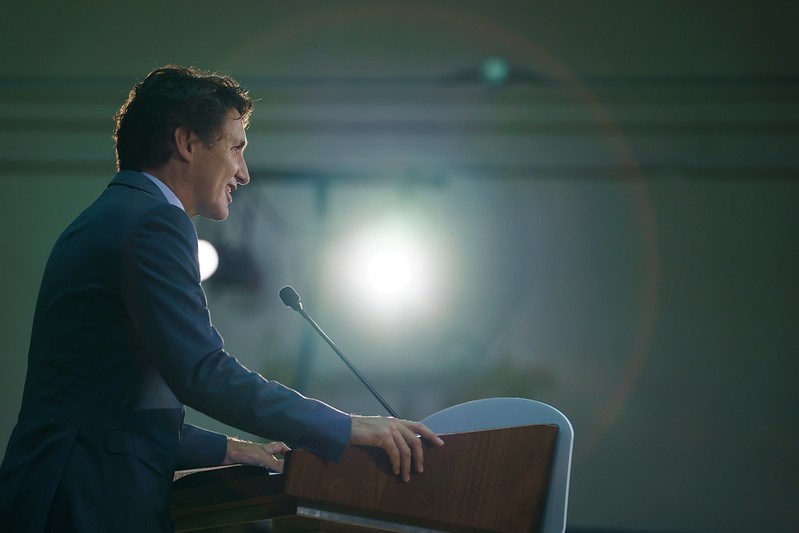In February, a long-awaited meeting between the prime minister and the provincial and territorial premiers will take place in Ottawa.
The discussions will focus on how to fund and manage health care across Canada, as stories about personnel shortages and surgery delays dominate the airwaves.
We have seen health care rising as an issue at the federal level, particularly among Canadians aged 55 and over who continue to voice concerns about the viability of the system. The meeting will also provide an opportunity for Prime Minister Justin Trudeau to reconnect with the electorate after a complicated end of 2022, even if the supply and confidence agreement that the Liberal Party reached with the New Democratic Party (NDP) ensures that no federal election will take place until 2025.
Every six months, Research Co. and Glacier Media ask Canadians about national unity and their heads of government. At the start of this year, more than half of Canadians (52 per cent) think their province would be better off with a different prime minister in Ottawa, up one point since our previous survey in June 2022.
As has been traditionally the case, animosity towards Trudeau is particularly high in Alberta (66 per cent, up two points) and Manitoba and Saskatchewan (65 per cent, up five points). The proportions of dissatisfied Canadians are lower in Atlantic Canada (44 per cent, down eight points) and Quebec (42 per cent, down three points).
There are bigger problems for Trudeau in two other provinces.
In Ontario, which has proven crucial for the Liberal minority wins in 2019 and 2021, 52 per cent of residents (up four points) think they would be better off if someone else takes over at the federal level. In British Columbia, where Trudeau did remarkably well in 2015, 57 per cent (also up four points) appear to be ready for a new prime minister.
In Ontario and British Columbia, the Liberals need to maintain support in cities. There is an evident challenge from the Conservative Party, as outlined by the way in which federal opposition leader Pierre Poilievre has discussed housing – an issue that is particularly prominent among young urban voters.
Trudeau has not gained much traction as an economic manager, with just over two in five Canadians (42 per cent) telling us that they trust him to make the right decisions on this file. The First Ministers’ conference provides a chance to reconnect with voters, as well as establish some rapport with the new faces Trudeau will see around the table.
When we assess the perceptions of Canadians on their premiers, there are some shifts in the four most populous provinces.
More than two in five Quebecers (45 per cent) believe their province would be better off under a different premier, down three points since June, before François Legault fought an election that resulted in a new majority mandate. The needle did not move much in British Columbia, going from 41 per cent with John Horgan in June 2022 to 40 per cent under David Eby this month.
Majorities of Ontarians (57 per cent) and Albertans (55 per cent) think their province would be better off under a different premier. In Ontario, the proportion is up by 14 points, after a provincial election where a disjointed opposition was unable to get traction against Doug Ford. Alberta’s case is different. Danielle Smith’s showing is a 10-point improvement from the numbers that Jason Kenney posted in mid-2022.
The premier rankings also help tell the story of national unity. In Quebec, separatist sentiment fell from 32 per cent to 26 per cent. In Alberta, 26 per cent of residents also think their province would be better off as its own country, but this represents a seven-point drop since June.
We have asked Albertans this question six times. In December 2019, when Kenney’s tenure was starting, 40 per cent of the province’s residents were ready to flirt with independence. This month, the proportion is at an all-time low of 26 per cent—hardly “winning conditions” if we were to borrow Lucien Bouchard’s phrase from the late 1990s.
It is certainly peculiar that, now that Alberta has a premier who has made sovereignty a cornerstone of her policies, the proportion of residents who feel that separation is the best course of action has dropped. What may have been regarded as a unique opportunity to herald the benefits of a different relationship with Ottawa appears to only have succeeded in turning voters off.
Mario Canseco is president of Research Co.
Results are based on an online study conducted from January 20 to January 22, 2023, among 1,000 adults in Canada. The data has been statistically weighted according to Canadian census figures for age, gender and region. The margin of error – which measures sample variability – is +/- 3.1 percentage points, 19 times out of 20.




